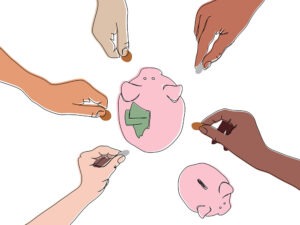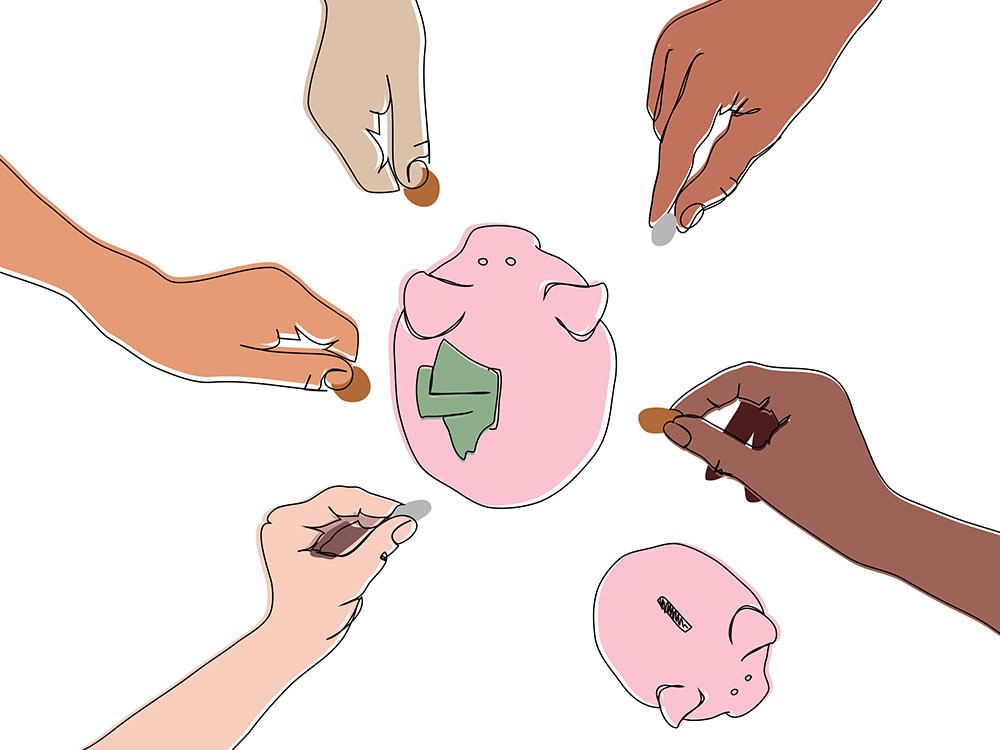
August 20, 2020; Washington Post
You can’t say we didn’t warn you about Trump booster and chief strategist Steve Bannon’s inclinations—at least where charity is concerned. In 2016, Michael Wyland wrote a newswire for NPQ that noted what appeared to be private inurement from a charity named—ironically, considering the context—the Government Accountability Institute. In truth, the Trump campaign as a whole appeared to be casual in its adherence to charitable standards, as was proven in the shutdown of the Donald J. Trump Foundation. So it should not be so surprising that federal criminal charges have now been lodged against Bannon and three others, including Brian Kolfage, for defrauding donors in the context of the We Build the Wall crowdfunding campaign.
We have covered the campaign, as well as the fate of the section of wall that finally was erected, numerous times—most recently in July, when it appeared to be in danger of collapsing into the surrounding landscape. Kolfage is the conflict-disabled Air Force veteran who started the campaign, which eventually raised $25 million for a project the president subsequently declared had been designed to make him “look bad.”
Both Kolfage and Bannon are charged with lying to potential donors when they promised they would take no compensation from the campaign. The reality was that Bannon managed to grab around $1 million from the campaign through another nonprofit he controlled. He kept a “substantial portion” for himself according to prosecutors, while sending hundreds of thousands on to Kolfage. The scheme came complete with the use of fake invoices to hide payments to Bannon, Kolfage, and confederates Andrew Badolato and Timothy Shea. All have been charged with conspiracy to commit wire fraud and money laundering. The indictment details this in 23 pages.
“As alleged, the defendants defrauded hundreds of thousands of donors, capitalizing on their interest in funding a border wall to raise millions of dollars, under the false pretense that all of that money would be spent on construction,” writes acting Manhattan US attorney Audrey Strauss in a statement announcing the case. “While repeatedly assuring donors that Brian Kolfage, the founder and public face of We Build the Wall, would not be paid a cent, the defendants secretly schemed to pass hundreds of thousands of dollars to Kolfage, which he used to fund his lavish lifestyle.”
Sign up for our free newsletters
Subscribe to NPQ's newsletters to have our top stories delivered directly to your inbox.
By signing up, you agree to our privacy policy and terms of use, and to receive messages from NPQ and our partners.
Bannon was arrested by US Postal Service officials while cruising off the Connecticut shore on a 150-foot yacht called the Lady May belonging to Chinese billionaire Guo Wengui, who is himself being sought by Beijing on charges of fraud, blackmail, and bribery. Bannon has pleaded not guilty and was released on $5 million bond and his assurance that he would not use private yachts or planes anymore to try to escape prosecution. Badolato and Shea were also released on bond after appearances in Colorado and Florida.
In a 23-page indictment, Kolfage is described as receiving more than $350,000 in donor funds, then using the money to pay for home renovations, a luxury SUV, a golf cart, jewelry, cosmetic surgery, and to address personal taxes and credit card debt.
Authorities say Kolfage also used the charity’s funds to purchase a boat called Warfighter, used as a waterborne float in a “Trump boat parade” on July 4th. Meanwhile, Kolfage was trying to launch a new fundraising campaign through GoFundMe intended to bankroll a suit against Black Lives Matter.
The Guardian reports that among We Build the Wall’s organizers and advisors “is a roll call of top figures in Republican and conservative circles,” including Kris Kobach, the former Kansas secretary of state; Erik Prince, founder of the private military contractor Blackwater USA; former Colorado congressman Tom Tancredo; former Milwaukee county sheriff Dave Clarke; and former Major League Baseball pitcher Curt Schilling. We don’t know what they knew about the scheme at this point, but what might they have anticipated?
Bamboozling one’s own political supporters is a classic “short con,” evincing a disdain and extractive mindset that’s hard to miss. Still, it’s dead consistent with our 2020 economy and political scene.—Ruth McCambridge













